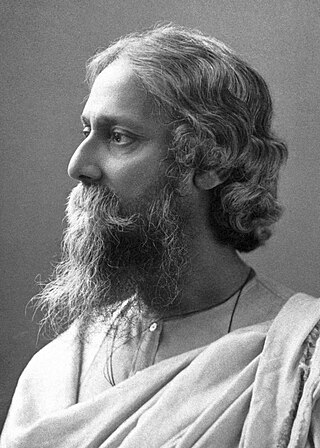Related Research Articles

The Bangla Academy is an autonomous institution funded by the Bangladesh government that fosters the Bengali language, literature and culture, works to develop and implement national language policy and to do original research in the Bengali language. Established in 1955, it is located in Burdwan House in Shahbagh, Dhaka, within the grounds of the University of Dhaka and Suhrawardy Udyan. The Bangla Academy hosts the annual Ekushey Book Fair.

Bengali novels occupy a major part of Bengali literature. Despite the evidence of Bengali literary traditions dating back to the 7th century, the format of novel or prose writing did not fully emerge until the early nineteenth century. The development of Bengali novel was fueled by colonial encounter, booming print culture, growth of urban centers, and increased middle-class readership Upanyas, the Bangla word for novel, is derived from the words upanay and upanyasta.
National Professor is a prestigious teaching award given by the Government of Bangladesh for outstanding contribution on the field of education. It is awarded by the president of Bangladesh according to Bangladesh National Professor Resolution 1981. The awarded persons receive various facilities from the government.
Bangladesh Academy of Sciences is an academic forum for Bangladeshi scientists and technologists. Established in 1973, it aims to fulfill the role of promoting research and development of sciences in Bangladesh.
Chowdhury is a title of honour, usually hereditary, originating from the Indian subcontinent. It is an adaption from Sanskrit. During the Mughal rule, it was a title awarded to eminent people, while during British rule, the term was associated with zamindars and social leaders. The common female equivalent was Chowdhurani. Many landlords under the Permanent Settlement carried this surname. Land reforms after the partition of India abolished the permanent settlement. In modern times, the term is a common South Asian surname for both males and females.